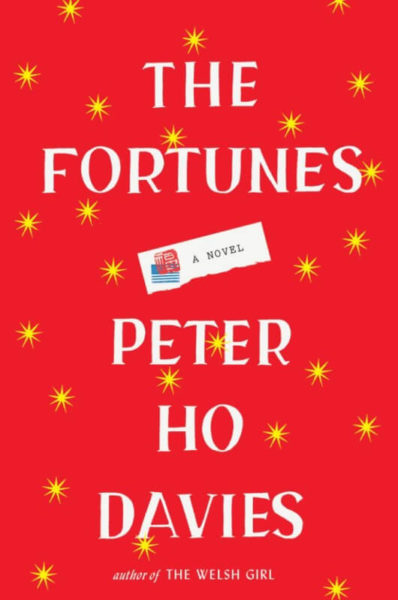Peter Ho Davies’ latest novel The Fortunes traverses 150 years of Chinese American history through the stories of four characters. Beginning with Ah Ling, biracial servant to railroad baron Charles Crocker in the late nineteenth century, the book moves on to Anna May Wong in the 1930s, then to a friend of Vincent Chin who was murdered in Detroit in 1982, and lastly to a biracial father about to adopt a daughter from China. These four Chinese Americans’ stories are captured in novella-like sections, a broad interpretation of a multi-generational story. Davies neither glamorizes nor castigates any of these historical moments or figures, but rather seeks to complicate his characters. In the process he exposes interracial tensions, commenting on how they fit into society at large, but also personal identity crises and a robust look at what it means to be Chinese American and part (or apart) of a Chinese community.
I will be upfront. I sometimes take issue with historical novels where I’m more familiar with the history (yes, I’m one of those people). I respect that sometimes the historical record is lacking and we need fiction to fill in truthful emotions that make stories accessible, bug I still struggle. At times (though certainly not always), I felt like Davies was trying too hard first to explain history (like the Hays Code and 1882 Chinese Exclusion Act), and only second to focus on the characters and their own turmoils, which were plenty engrossing.
The Fortunes begins a bit slowly, but it picks up steam over time (pardon the railroad pun). Davies smartly looks at the complicated relations between Chinese across time, both in the United States and China. Here is commentary that is refreshing in its unabashedness, at times biting, even. Be it Ah Ling’s thoughts regarding the Chinese railroad laborers — were they comrades or less than? Or John Smith’s concerns about Chinese American-ness in China when surrounded by white parents adopting Chinese babies. Is he lucky or unlucky? Or this line from Vincent Chin’s friend.
I wasn’t as cool as him, you might say, and I wasn’t, but really any Chinese is less cool alongside another. Maybe we lose our exoticism. More likely it’s that alone, we can define ourselves; with another, we invite all the stereotypes. Along, or especially with Jerry or Mike, he was Vince. Next to me, he was Vincent, Asian.
Such gems pepper the chapters in The Fortunes, providing a nuanced version of Chinese America that weaves fact and fiction over and in-between itself, to your delight and possibly consternation, but that front and center highlights the most human of flaws and desires in its four central characters.





